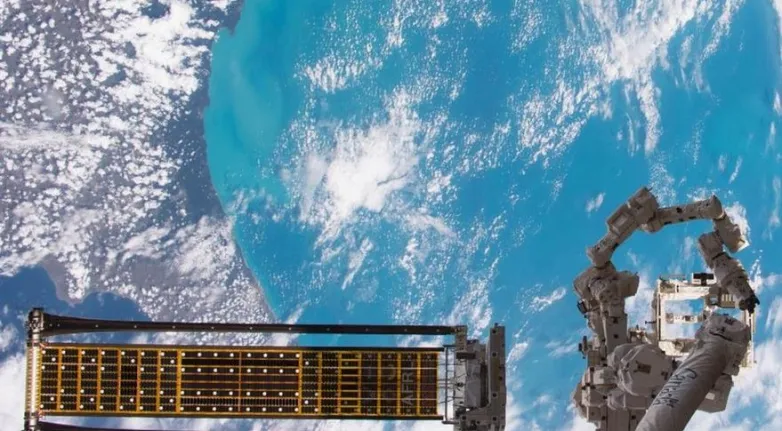Maxar selects Deployable Space Systems to build solar arrays for Gateway’s Power and Propulsion Element
Oct 4, 2019 01:00 PM ET
- Maxar Technologies awarded a contract to Deployable Space Systems to manufacture flexible solar arrays for the Power and Propulsion Element of the Gateway, a key element of NASA’s Artemis campaign to return humans to the moon.

Maxar Technologies awarded a contract to Deployable Space Systems to manufacture flexible solar arrays for the Power and Propulsion Element of the Gateway, a key element of NASA’s Artemis campaign to return humans to the moon.
DSS announced the contract Oct. 1 for Roll Out Solar Array, or ROSA, a lightweight flexible blanket array the company demonstrated on the International Space Station in 2017. DSS declined to comment on the value of the Maxar contract.
“This contract is very important to DSS because it contributes to our nation’s and NASA’s human exploration initiatives and ultimately enables human exploration to Mars,” DSS President Brian Spence said by email. “For DSS to be able to participate in a program of this magnitude, helping pave the way to enable lunar and Mars exploration, is exciting.”
DSS, based in Goleta, California, is becoming adept at producing large solar arrays, Spence said. For the Power and Propulsion Element, DSS plans to manufacture two solar arrays, measuring approximately eight meters by twenty meters. Each array will produce 32.5 kilowatts, he added.
The solar array DSS tested on the space station in 2017 with support from the U.S. Air Force Research Laboratory and NASA measured about 1.6 meters by six meters. Since that test, government and commercial customers have expressed strong interest and placed orders for ROSA, Spence said.
DSS set up its manufacturing plant to produce multiple solar wings capable of producing 25 kilowatts each for an undisclosed customer. Since the Power and Propulsion Element is in the same size class, DSS can “leverage our existing ROSA production infrastructure to provide the highest value to NASA, Maxar and our other customers demanding similar technology,” Spence said. “This contract is yet again another validation that DSS’s ROSA solar array is a market disruptive technology in terms of high performance and affordability.”
DSS sees strong demand among different customers for ROSA in different sizes for various missions, Spence said. Johns Hopkins University awarded DSS a contract in 2018 to produce ROSAs for NASA’s Double Asteroid Redirect Test, scheduled to launch in 2021.
NASA selected Maxar in May to produce the Gateway’s Power and Propulsion Element. Maxar’s design is based on its 1300-class satellite platform. Maxar and DSS have been longtime partners with Maxar helping DSS test and qualify ROSA.
Also read

